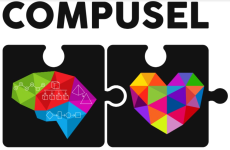E-Learning Compusel
About Us
Empowering Students via SEL At COMPUSEL, we believe that emotional intelligence is the key to academic achievement. We provide primary school teachers with the tools to help students navigate life’s social and emotional challenges.
- Curriculum-Based Learning: Structured paths for emotional growth.
- Digital Storytelling: Engaging scenarios to solve real-world challenges.
- Teacher Training: Specialized support for primary educators.

Skip available courses
Available courses
LEARN ANYTIME, ANYWHERE
Enjoy our free online courses, wherever you are and whenever you want. Access course content on mobile, tablet or desktop.







